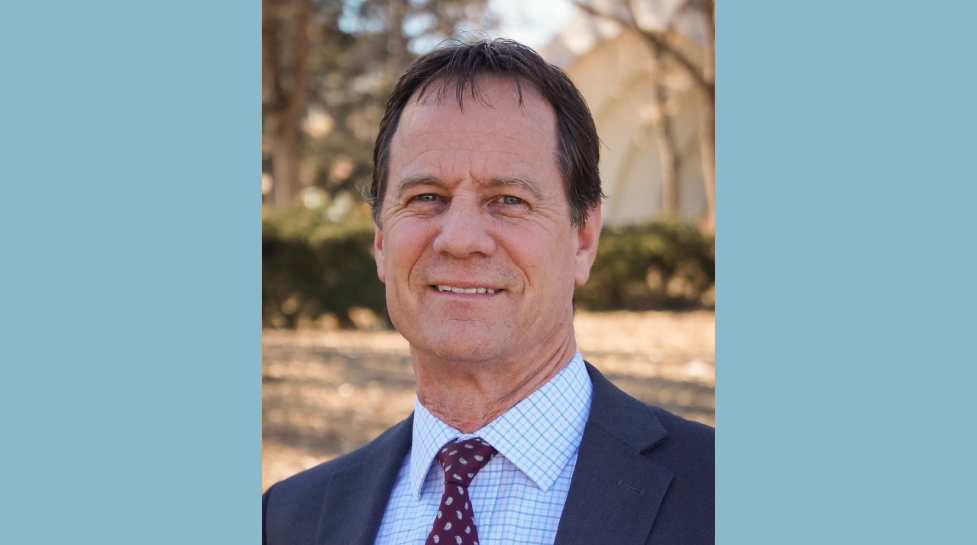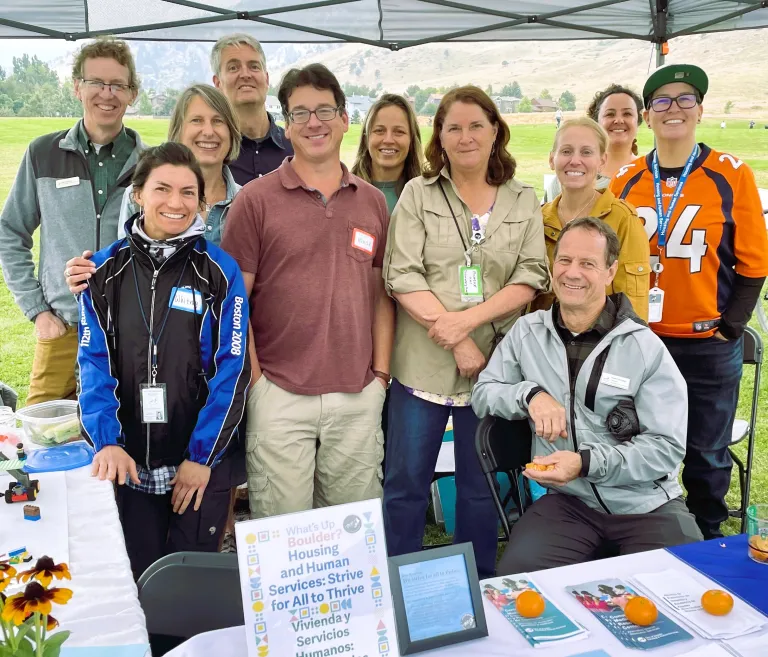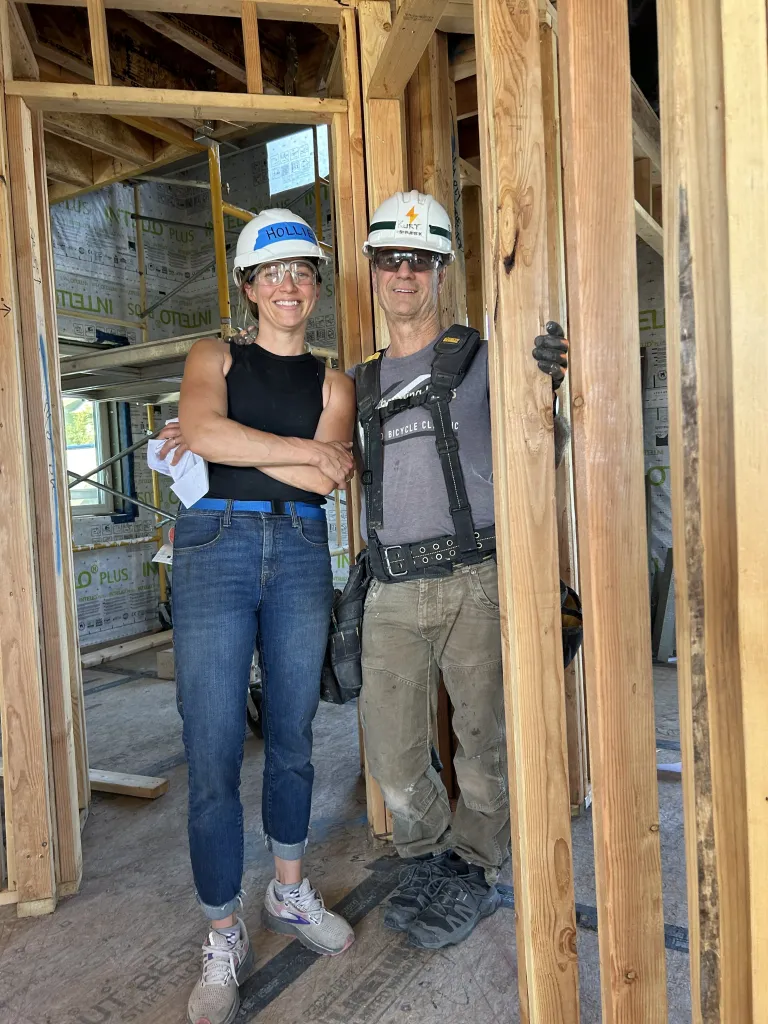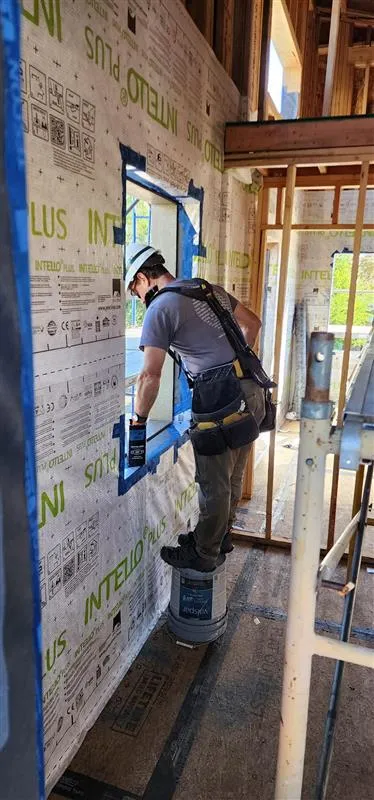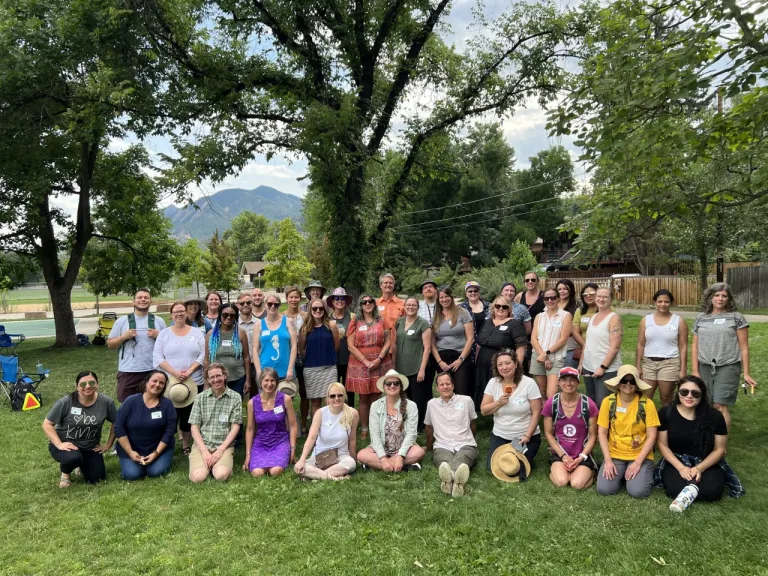Get to know Housing and Human Services Director Kurt Firnhaber through this Q&A.
Kurt’s commitment to serving communities he loves threads through his entire career and his dedication to making a positive impact on Boulder is evident. It's not uncommon to find Kurt charging his cordless drill under his office desk and he moves seamlessly from affordable housing construction sites to city council chambers; he regularly spends his evenings walking all over Boulder to absorb and observe our community; he inspires his team by encouraging courage and his passionate approach to addressing challenges; he’s always willing to step up and help out during emergencies and is often the first to sign up for work shifts at emergency shelters. Kurt brings a sense of joy to his work all while keeping a focus on getting things done.
Get to know Kurt better through this Q&A.
What drew you to Boulder?
I was drawn to the Boulder community initially because of my interest in the Environmental Design Program at CU back in 1981. I was a geek in solar engineering in high school and I was so pleased to join a design program with such an emphasis on the environment and sustainable approaches to living and development. I was able to grow that interest of environmental design over the years to include social housing approaches and the importance of building community while creating the built environment.
Boulder became a place for me to participate in the development of co-housing communities, affordable housing neighborhoods that created neighborly cohesion, and launching a local Habitat for Humanity affiliate that partnered with families. While I was drawn to the environmental priorities of the city, I also became enticed by the opportunity to create social strength through the development of housing and systems that help people thrive. After many years away from Boulder, I was drawn back to the city to tackle the challenges we now face in affordability and social inequities.
What is something you love about Boulder?
Like many Boulderites, I love the many miles of trails to hike and explore and the endless bike paths to navigate throughout the city. Most weeks you will find me walking in the evenings in the city’s many neighborhoods; along Boulder Creek, the Hill, the university, the various historical and newly redeveloped neighborhoods. My wife and I enjoy the different perspectives and varieties of places in Boulder that are observed through walking, that are often missed when simply driving through. Boulder must be one of the most walkable communities.
What do you love most about the work you do?
I most appreciate the challenges that my work provides. I have the opportunity, through local government, to address local challenges that impact regular people. While Boulder is one of the most beautiful cities, with a stunning university and a tremendous job market, it faces the same challenges other cities do, like working households struggling to pay for housing, food and daycare, finding help for healthcare, addiction services and behavior health. Local government is a place where real change can be made in meaningful ways. What I love most about my work is the people that I work with in Housing and Human Services and the tremendous passion and care that they bring to this work and the support they provide to each other and to our community. I am inspired by each of them and their dedication to addressing inequities that occur in every community and finding ways to help people thrive. It’s a tremendous team.
Local government is a place where real change can be made in meaningful ways. What I love most about my work is the people that I work with in Housing and Human Services and the tremendous passion and care that they bring to this work and the support they provide to each other and to our community.
- Kurt FirnhaberHow long have you worked for the city?
I have worked twenty-three of my professional years in Boulder and seventeen in southern Africa. Of those twenty-three years in Boulder, I have worked for the city for eight. I began as the deputy director of Housing and soon after, through the merger of Housing with Human Services I became the director of Housing and Human Services (HHS). The last eight years have flown by and so much has occurred: many affordable housing communities have been developed; new outreach programs have been launched to assist unhoused individuals into housing; housing for youth has been established; services for older adults have expanded; services supporting new immigrant families have increased; a COVID recovery center was initiated; regional partnerships have matured; ARPA funds have resourced supports to households; and community conversations have impacted it all. It has been a very full eight years.
What is an important skill or perspective you bring to your work?
I believe that my perspective is influenced by the variety and challenges I have had in working in other countries and cultures. I have had so many opportunities to serve in different settings, from being a teacher and working on a water project to bring clean water to a hospital in Zimbabwe, overseeing Habitat for Humanity in South Africa and supporting housing and reconciliation in other countries. I also had the opportunity to work in public health, running HIV clinics, medical male circumcision and supply chain management of medicine. I was very humbled by working with communities in Siera Leone who had experienced tremendous trauma between neighbors in a drawn-out war, creating housing through reconciliation and then seeing the historic impacts of Apartheid and the distinct oppression of entire peoples through the intentional planning of separate race townships. These experiences gave me the insight and confidence to walk into various levels of conflict and challenge. The different perspectives that I have gained from knowing the importance of affordable housing and public health on a healthy community has helped me support the HHS team dedicated to this work. Lastly, I have gained a perspective on the importance of supporting communities that have genuine relationships, are resilient in times of crises and work to address loneliness and connect people to each other.
What project are you most excited to begin or keep working on?
I am most excited to keep working on varied housing solutions to help those that have experienced homelessness in our community. In the past year we have assisted in creating a residential program where individuals with substance addiction can receive treatment, meet friends and find inclusion. We also helped support the Bluebird development where 40 individuals with high acuity can have a stable and secure home and receive services that meet their individual needs. Unhoused individuals need different types of housing options, and I am most excited about creating other unique developments that meet these needs.
What do you hope to accomplish in 2024?
In 2024, I am looking forward to the completion of the affordable housing modular factory, Boulder Mod, a new facility that will create net-zero modular homes in partnership with the Boulder Valley School District and Habitat for Humanity. It will be a unique opportunity to build community through volunteers, professionals, families and high school students working together to create energy efficient homes for community members to own. I am also excited that this project will expediate the replacement of vulnerable homes in the Ponderosa community in north Boulder.
Other priorities include the growing collaboration to increase behavioral health services to our residents and the evaluation of our behavioral health programs (CIRT and CARE), the guaranteed income initiative (Elevate Boulder) and Boulder’s homelessness services. These three evaluations will be conducted over the next two years and will help us understand the effectiveness and impact of our current programs and services.
What is your perspective on the challenges we face in homelessness and affordable housing, and how do you aspire to handle them as a leader?
Affordable housing and homelessness are national challenges that many towns and cities face, but which are felt deeply at a local level. They are also the result of failures at a federal level and a cultural of inequities. Without a national, effective health care system and larger investments in social housing, communities like Boulder are left to focus on what they can accomplish locally.
Homelessness in Boulder will only be solved when homelessness is solved nationally. However, we have and will continue to strongly lean into local solutions that provide the best housing opportunities for individuals to exit out of homelessness. While roughly 350 individuals are homeless on any given night in Boulder, we find homes for over 330 people each year. While we are able to house hundreds of people each year, the need for safe and affordable housing consistently exceeds the available housing options. This past year almost 1,200 individuals experienced homelessness at some point in Boulder.
We need to maintain our focus on solutions that we know work, while understanding that the challenge is bigger than our city. While focusing on the unhoused, we must not lose sight of our city's growing affordable housing needs. One out of every eleven people in Boulder live in affordable housing and the vast majority of households with children living in affordable housing are single mothers, often working multiple jobs, raising our next generation. We also have a growing population of older adults who are housing insecure and homeownership rates are in decline. The need for more affordable housing is evident. While Boulder is highly successful, the urgency to do more is felt every day.
What shows and books are you currently binging?
I recently finished the book The Inheritors, by Eve Fairbanks. This book was given to me as a gift and is historical fiction of individuals of different races in South Africa and their different experiences through the ending of Apartheid and the beginning of the new government. It was impactful for me to explore this historic time period from multiple perspectives.
My wife and I recently finished all the seasons of Anne with an E, or Anne of Green Gables. It is a lovely series that touches some modern-day social challenges from a time in the past. We so appreciated the thoughtful stories, beautiful videography and simple challenges of an adopted girl that works through her teenage years, builds friendships and discovers the love of family.
Boulderites love to get out and enjoy the great outdoors. What is your favorite outdoor activity or pastime?
My favorite activity is building housing with Habitat on the weekends and my favorite stroll is walking anywhere in the city and occasionally on the foothill trails.
What are you looking forward to doing most this summer in Boulder?
I have a set of strawberry and raspberry plants in the backyard. I always look forward to early summer mornings, picking the berries and eating them minutes later for breakfast.
What are some of your favorite places to eat in Boulder?
I enjoy eating establishments that find creative menus that don't use meat. My two favorites are Leaf, on Pearl Street and the Chautauqua Dining Hall. I have always enjoyed their amazingly creative dishes. They are both high on the list when visitors come to town.
What else do you want the Boulder community to know about you?
I look for ways to find joy and fun at work. While life and work can be challenging, finding opportunities to sing, express humor, dance and celebrate, while embracing occasional moments of vulnerability can lighten the toughness of our work.
